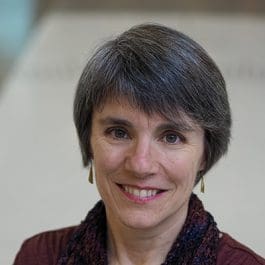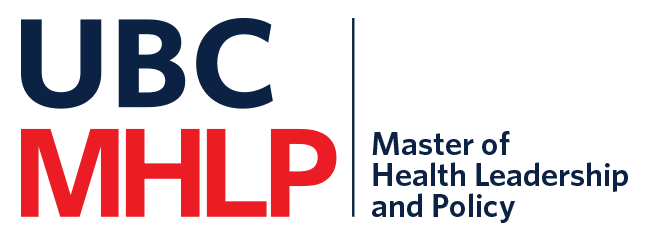Becoming a leader in geriatric care

By Alison Phinney, Professor in the School of Nursing and Director of the Master of Health Leadership and Policy in Seniors Care.
Individuals who want to be leaders in geriatric care are stepping into a very complex environment.
The way we fund seniors care, the impact of social determinants on health outcomes, the policies we’ve developed and the attitudes we hold about older adults all contribute to both challenges and opportunities for leadership.
It’s interesting to consider the different ways by which we’ve chosen to organize and fund our health and social care systems – and the implications this has for the way we as a society care for older people.
A critical look at structural dynamics of geriatric care
The healthcare system is generally designed to treat single issues and is challenged to address the multiple chronic health conditions that we often see in older people. What Canada includes in its definition of “universal health” does not include long-term continuing care.
There are different funding pathways and different policies underpinning the systems that are responsible for seniors’ care.
The attitudes that we bring to how we care for older people are also worth examining. These attitudes are both shaped by – and inform – policy and practice. The COVID-19 pandemic spurred many conversations about health care and health outcomes for seniors.
It laid bare the extreme lack of funding for long-term care facilities and exposed the attitudes we hold about older adults in the decisions that were made to close doors and socially isolate people in a way that would not be acceptable for other age groups.
Leaders in geriatric care benefit from a background in practice and a frontline understanding of the realities of care. As individuals transition into leadership roles, however, their perspective must broaden to take into account the complex structural dynamics of geriatric care.
It’s about appreciating the interconnections that shape and influence the system as a whole, being able to integrate knowledge from other disciplines and identifying where you can make a difference.
Integrating perspectives, enhancing seniors’ care
The students who pursue the Master of Health Leadership and Policy in Seniors Care come to UBC with diverse expertise. We have students from around the world, with practice backgrounds in nursing, medicine, geriatric care, physiotherapy, nutrition and more.
Students are given space within the program to position their own knowledge and experience and to learn from each other.
Group-based project work and class discussions create opportunities to practice integrating multiple perspectives.
The business courses offered through Sauder push that even further as students learn alongside classmates from the Master of Engineering Leadership. Students learn about organizational management, finance, strategy and sustainability and are encouraged to move their decision-making and perspectives to a different and larger level.
Nurturing ideas for change in geriatric care
I teach a course on the social demography of aging, which explores the social factors that affect health and the policies that are the foundation of our healthcare system.
For the main assignment, I ask students to analyze a topic in geriatric care through these different layers and to explore the health issues, social factors, policies and other forces that shape and influence the issue.
Students delve into the literature of evidence-based research, and they share their learning through writing and presentations.
The program’s emphasis on communication skills sets students up for success when they return to the workforce.
Finally, there is no shortage of good ideas about how to improve the systems in place that support older adults. The MHLP in Seniors Care helps students explore some of those ideas as they are enacted in practice through fieldwork and site visits, and by bringing industry leaders into the classroom to share their experiences.
It makes for a rich learning environment that provides students with the knowledge, network and tools they will need to be leaders in geriatric care.
Application Deadlines
Get ready to apply!
Admissions for the 2026 intake will open on January 1, 2025.
How to ApplyJoin us for an
Info Session
Sign up for our latest online information sessions and discover what our programs have to offer.
Sign Up NowFeatured Faculty and Staff

DR. ALISON PHINNEY
Featured Alumni

Margaret Lin
Margaret Lin exemplifies the power of following your curiosity and actively pursuing opportunities. One thing led to another after she completed a course project on a topic she was keenly interested in – and she is now working in a position she loves where she has a far-reaching impact on senior health.
